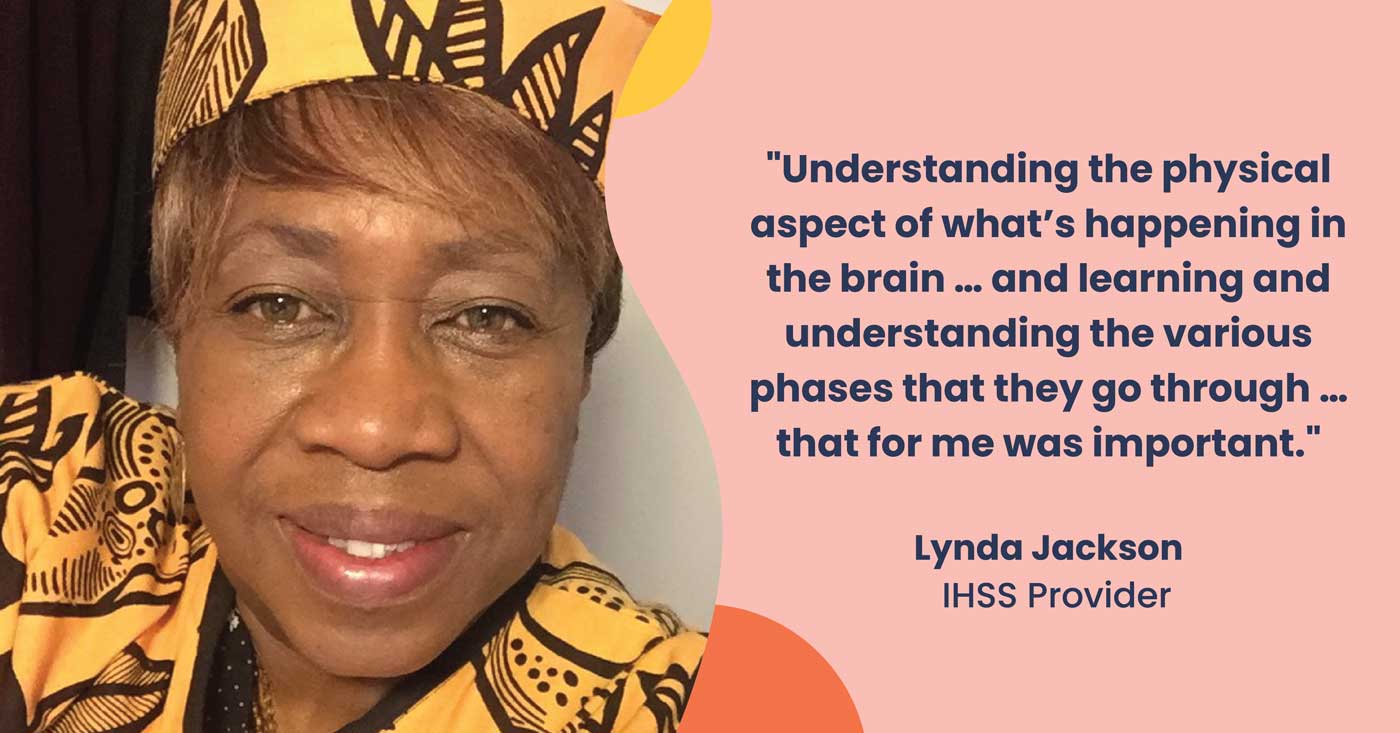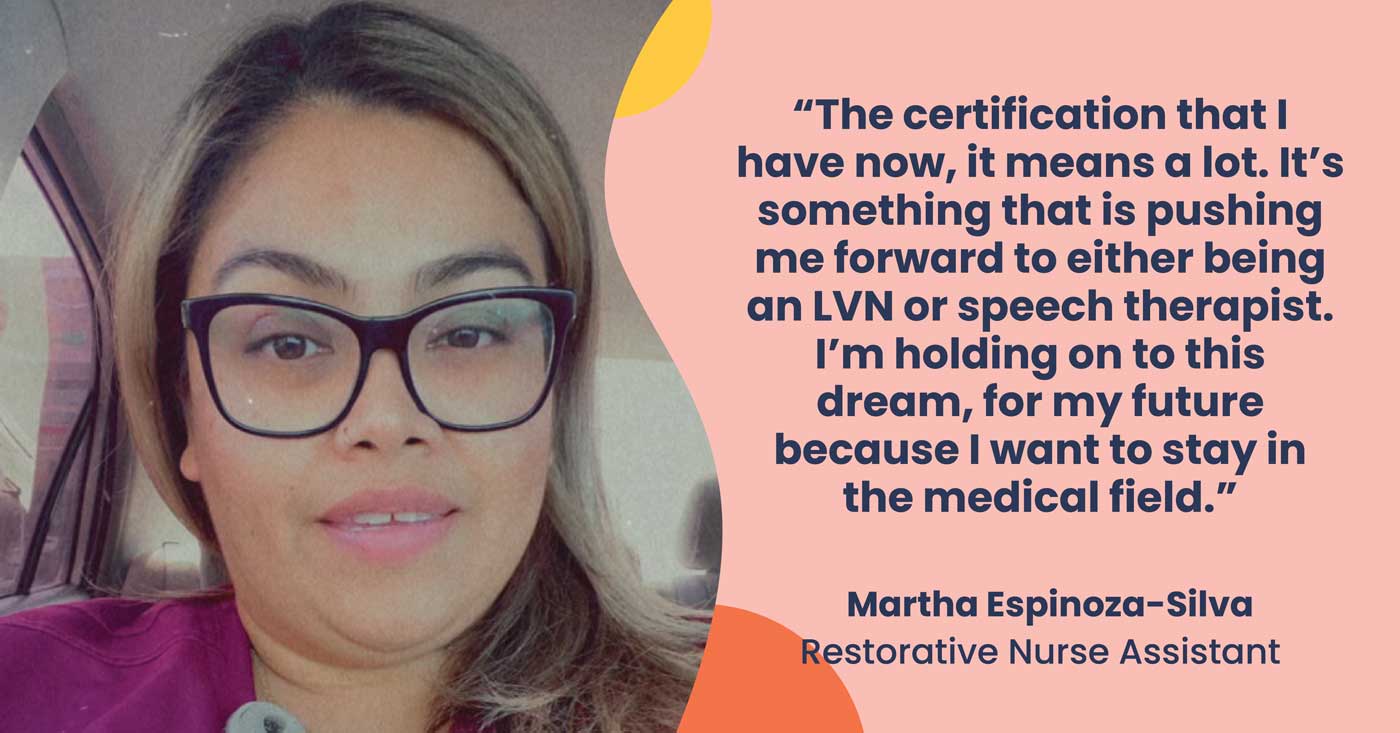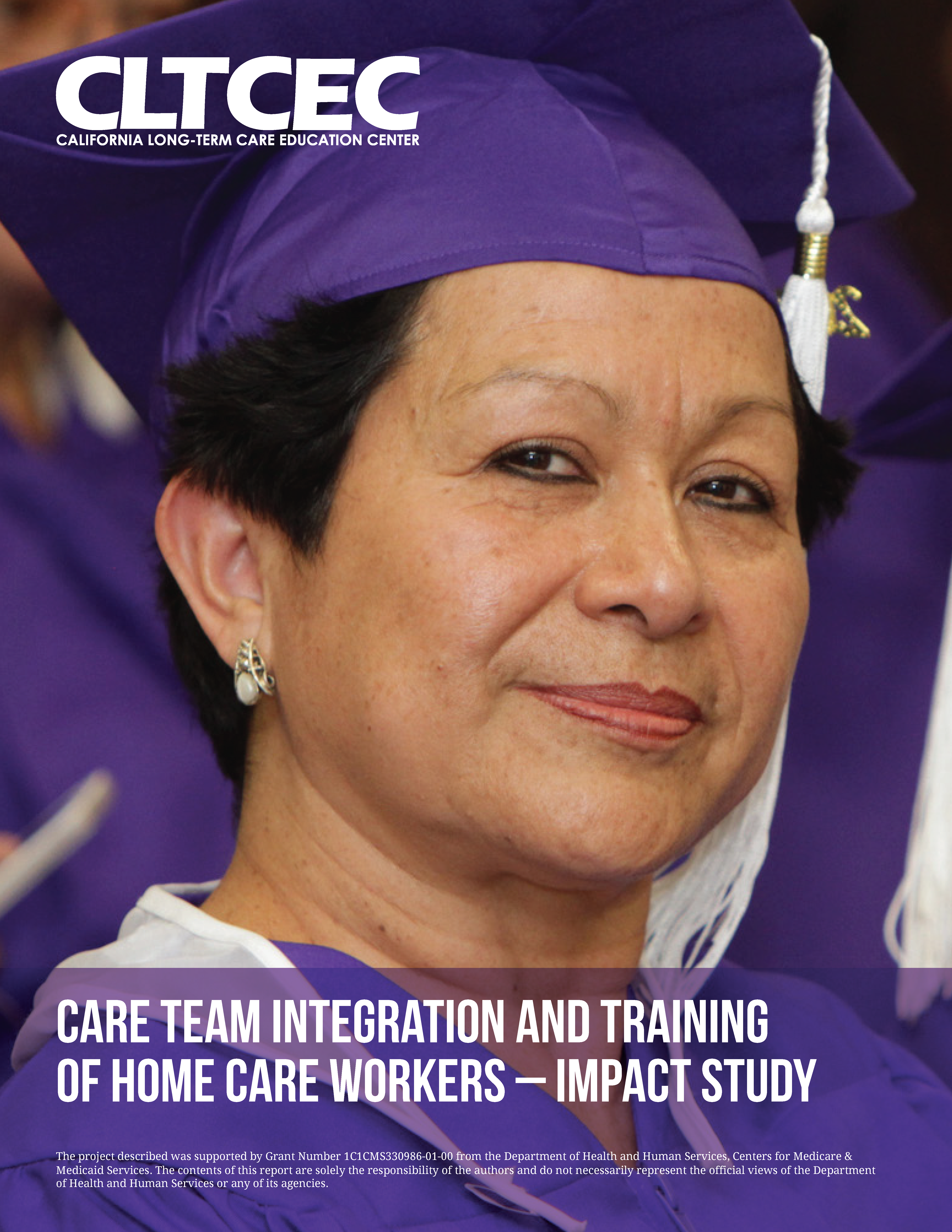
Watching one of the people she cares for show signs of dementia breaks Lynda Jackson’s heart just a little. The biggest struggle was dealing with the memory loss – they would argue over trivial things, like forgetting where a shirt went or that a question had already been asked and answered.
So Jackson enrolled in the Center for Caregiver Advancement’s caregiver training program focusing on caring for people with Alzheimer’s and dementia. For Jackson, the turning point of the care training was the module on how each stage of the disease affects the brain. “To me, understanding the physical aspect of what’s happening in the brain … and learning and understanding the various phases that they go through … that for me was important,” she says.
Aside from covering the essential skills of caregiving, CCA’s IHSS+ Alzheimer’s training program in Alameda County introduces caregivers to the symptoms and stages of Alzheimer’s disease and related dementia (ADRD), which differ from the signs of aging. To improve the quality of care they provide to adults with ADRD, they learn strategies for responding to common behaviors associated with the disease. These behaviors include aggressive language and repetitive questioning. The care providers learn ways to reduce agitation and anxiety. They learn to recognize wandering, sundowning, and hallucinations.
Armed with a new understanding of the disease, Jackson also listened to her fellow caregivers share their experiences with their care recipient’s symptoms and the different ways they responded. The training helped her get more creative with how she provided care for 70-year-old Grace (name changed for privacy).
“The training program helped me get inventive on how to make their care better, making me more aware of their needs,” Jackson says.
When Grace started forgetting little things, Jackson encouraged Grace to write down her requests either on a tablet or a piece of paper. Now they rely on those notes, clearly written by Grace, to avoid arguments. They do crossword puzzles, read books, go for walks. Grace likes music from the 1970s, so Jackson will sometimes look up artists from that decade and play their songs from her phone. On good days, Grace sings along. On bad days, they will get in Jackson’s car and drive around Berkeley, wondering about each house’s history and the people who live there.
Since her IHSS+ Alzheimer’s training ended in December, Jackson says she wants to keep reading about the disease itself and learning more about the way the brain works. She encourages other caregivers to take the training. “The curriculum is good. It was encouraging and informative. Now I’ve got the knowledge that I can apply to my caregiving,” she says
Grace is like family and seeing her struggle “hurts my heart just a little,” Jackson says.
But her heart is full every day she walks in Grace’s door. “When I come in, she comes and hugs me first thing! I don’t even get to take off my coat. And I think, ‘that’s good, that’s good.’ And I want to hold on to that as long as I can.”





